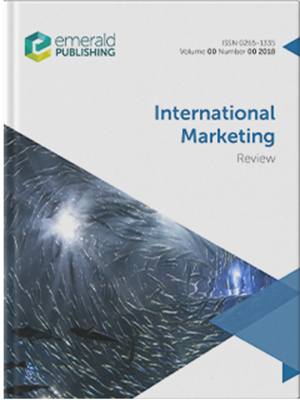企业国际化中的知识轨迹
IF 4.6
3区 管理学
Q1 BUSINESS
引用次数: 0
摘要
目的本文的目的是分析国际化企业在进入国外市场期间和进入后的整个时间内如何积累来自不同领域的知识。本文主要研究市场、制度、国际化和技术知识。设计/方法论/方法本文采用比较案例研究方法,依托跨国公司国际化过程的三个纵向案例,特别是跨国公司在一个外国市场(巴西)的进入和进入后的迁移,国际化的公司在巴西境内不均衡地发展经验知识。因此,市场、国际化、制度和技术知识遵循不同的积累模式,并根据优先性、同时性和速度进行区分。更具体地说,(1)市场和机构知识轨迹同时演变;(2) 市场知识轨迹先于技术知识轨迹。(3)国际化知识的积累速度快于市场、制度和技术知识的积累。原创性/价值本文展示了国际化过程中的知识积累如何随着时间的推移和所涉及的知识类型的不同而变化。虽然大多数文献都依赖于对知识变化性质的横断面研究,但本文表明,国际化企业积累市场、国际化、制度和技术知识遵循三个时间维度:优先性、同时性和速度。本文章由计算机程序翻译,如有差异,请以英文原文为准。
Knowledge trajectories in the internationalization of the firm
PurposeThe purpose of this paper is to analyze how the internationalizing firm accumulates knowledge from different domains throughout time, during entry and post-entry moves in a foreign market. This paper focuses on market, institutional, internationalization and technological knowledge.Design/methodology/approachThe paper uses a comparative case study method, relying on three longitudinal cases of multinational firms' (MNEs) internationalization processes, particularly concerning MNEs' entry and post-entry moves in one foreign market (Brazil).FindingsThroughout the internationalization processes, the internationalizing firms unevenly developed experiential knowledge within Brazil. As a result, the market, internationalization, institutional and technological knowledge followed different accumulation patterns, distinguished based on precedence, simultaneity and speed. More specifically, (1) the market and institutional knowledge trajectories evolved simultaneously; (2) the market knowledge trajectory preceded that of technological knowledge and (3) the accumulation of internationalization knowledge happened faster than that of the market, institutional and technological knowledge.Originality/valueThis paper shows how knowledge accumulation in internationalization processes varies throughout time and according to the type of knowledge involved. While most of the literature relies on cross-sectional studies that discount the changing nature of knowledge, this paper shows that the internationalizing firm accumulates market, internationalization, institutional and technological knowledge following three temporal dimensions: precedence, simultaneity and speed.
求助全文
通过发布文献求助,成功后即可免费获取论文全文。
去求助
来源期刊

International Marketing Review
BUSINESS-
CiteScore
8.70
自引率
12.00%
发文量
55
期刊介绍:
International Marketing Review (IMR) is a journal that has, as its core remit, the goal of publishing research that pushes back the boundaries of international marketing knowledge. IMR does this by publishing novel research ideas, and by publishing papers that add substance to, question the basic assumptions of, reframe, or otherwise shape what we think we know within in the international marketing field. IMR is pluralistic, publishing papers that are conceptual, quantitative-empirical, or qualitative-empirical. At IMR, we aim to be a journal that recognizes great papers and great research ideas, and works hard with authors to nurture those ideas through to publication. We aim to be a journal that is proactive in developing the research agenda in international marketing, by identifying critical research issues, and promoting research within those areas. Finally, IMR is a journal that is comfortable exploring, and that fosters the exploration of, the interfaces and overlaps between international marketing and other business disciplines. Where no interfaces or overlaps exist, IMR will be a journal that is ready to create them. IMR’s definition of international marketing is purposefully broad and includes, although is not restricted to: -International market entry decisions and relationships; -Export marketing and supply chain issues; -International retailing; -International channel management; -Consumer ethnocentrism, country and product image and origin effects; -Cultural considerations in international marketing; -International marketing strategy; -Aspects of international marketing management such as international branding, advertising and new product development.
 求助内容:
求助内容: 应助结果提醒方式:
应助结果提醒方式:


